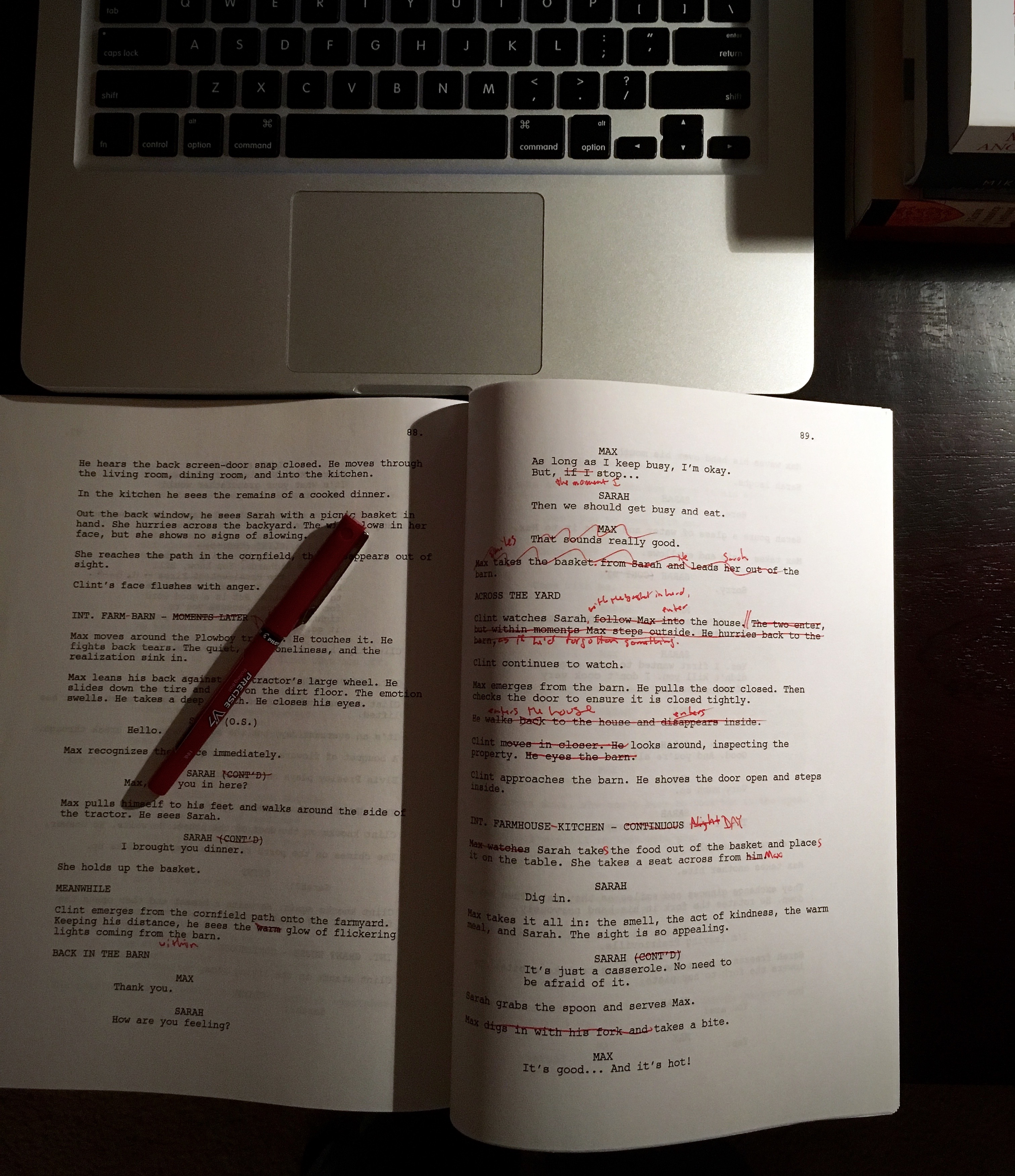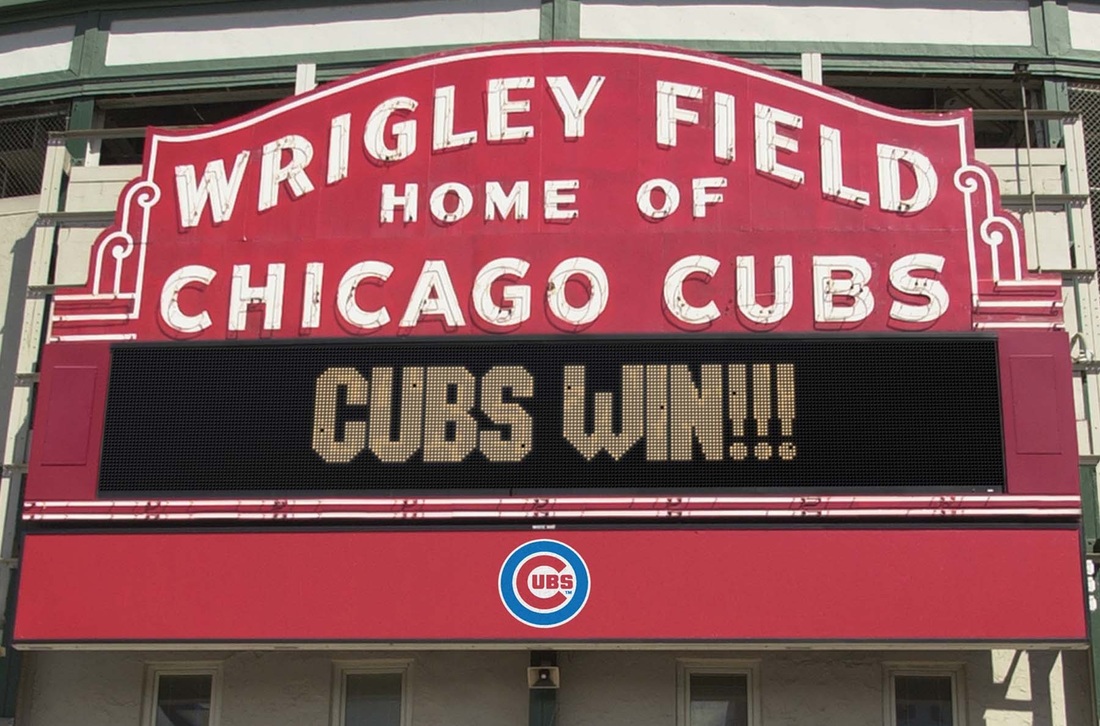|
I don’t have much to say this week. I’m deep into a rewrite of a script I wrote a few years ago called The Tinker Dreamer. Here is a very short synopsis: In pre space-race America, when science fiction graphic novels formed our ideas of life beyond our world, an inventive boy from a small town dreams up a way to go to outer space.
With time comes perspective and fresh eyes. There is so much of this story that I’m proud of and I find very endearing, but its weaknesses are glaring. That’s why I have my red pen. I love doing rewrites. It means the grueling grunt work of pounding out the first draft is over. The raw materials for the story have been gathered and the crafting begins. With my red pen I chisel the story word by word line by line. The goal is to be thorough yet efficient, to ignite the reader’s imagination so when they put down the script they think, “I want to see this movie.” That is the task at hand. I hope to have a new polished draft by the end of the year.
0 Comments
Jesus was once asked, “Who is my neighbor?” The question came after a discussion about the greatest commandments, in which Jesus iterated the golden rule “Love your neighbor as yourself.” Jesus responded to the question by telling a story (he did that a lot, I think that’s why I’m drawn to him). It is a story we’ve all heard. It is the story of The Good Samaritan. It goes like this: a man falls into the hands of robbers and is left stripped of his clothes and badly beaten. Two local travelers, from the majority religious class, come across the ailing man but pass on the other side of the road. A third traveler, a foreigner from a minority religious group, took pity on the man, bandaged his wounds, and saw that he was cared for. After telling the story, Jesus asked the teacher of the law who of the three travelers was the neighbor to the man who fell into the hands of robbers. The teacher of the law responded, “The one who had mercy.”
I love America and I’ve been very fortunate to live in different parts of this wonderfully diverse country. For the first 21 years of my life, I lived in the rural Midwest. I then spent four years in New England splitting my time between New Hampshire and Boston. I eventually landed in Los Angeles, my home for the past eleven years. I have lived in red counties and blue counties. I’ve lived in small towns and big cities. The events of the past week have so many people talking about the divide: the divide between religious conservatives vs. progressive liberals, the divide between rural America and urban America, the divide between the working class and the elite class. The divide between white Americans and everybody else. I have friends and family, whom I love dearly, on both sides of the divide. Some are thrilled with the outcome of the election. Some are very very worried. This election has challenged me to think about this “greatest commandment” about loving one’s neighbor. It’s not easy when it feels like there is so much at stake. It is not easy when my neighbor does not think like me, speak like me, act like me, or love like me. The temptation is to stay on the other side of the road, to stay on my side of the divide. We justify our position by claiming our convictions. But here is what I’m learning: Conviction without mercy is simply ideology. And ideology is the most dangerous threat to our world for it keeps us from seeing our neighbors in need. Unity will not come from one person at the top. It will only come when we learn to love our neighbor. And if we can’t learn to love our neighbor, the least we can do is show them a little mercy. Unless you’ve been living in a clamshell for the past week, you’re aware that the Chicago Cubs won the World Series for the first time since 1908. I have been a lifelong Cubs fan. I grew up listening to Harry Carry and Steve Stone announce the games from “beautiful Wrigley field.” When I was a young boy, my friend and I wrote a letter to the Cubs. We told them, “We like the home runs you make.” The Cubs wrote us back thanking us for our support and giving us Cubs pencils and stickers. I imagined Ryne Sandberg sitting in the dugout reading our letter. I was hooked.
Summer Sundays were a ritual in my house: church in the morning, lunch with my grandparents, and the Cubs in afternoon. But it wasn’t just Sundays. If the Cubs were playing, they were on our TV or radio. For six months each year the Cubs were playing to the rhythm of our daily lives. Once a year we would drive to Chicago to see a Cubs game. The experience was overwhelming for a boy from a small town. The buildings were so tall, the city so alive, and Wrigley Field so green. At one game, my favorite player Jody Davis was at bat and the crowd started chanting “Jody! Jody! Jody!” He hit a home run into the left-field bleachers. I couldn’t believe it. The Jody chant worked. It really worked. Baseball is magic. My first taste of alcohol came in 1989 when my dad poured a sip of champagne for my brother and me to celebrate the Cubs winning the division and advancing to the pennant. I didn’t like the taste of champagne, but I did like the feeling of the Cubs winning. That season ended in disappointment. The Chicago Cubs narrative for the past 108 years has been Someday. The more optimistic fans would say next year. For more than a century it didn’t happen. An entire generation of Cub fans lived and died saying Someday. Over time it felt foolish to keep saying Someday so many embraced the “cursed” narrative. It provided an explanation for our perpetual disappointment. Wednesday night, Game 7, I watched pacing back and forth, my palms pressed together beneath my chin, my stomach twisted in knots. We are so close, I kept thinking, so close. It was one of the most incredible baseball games I’ve ever witnessed and this time it did not end with disappointment. It ended with jubilation. My friends, it is not foolish to say Someday. It is not foolish to believe. Curses be damned. The Chicago Cubs have won the World Series. |
AuthorA WRITER AND TRAVELER KEEPING THE FAITH IN LOS ANGELES Subjects
All
Archives
August 2022
© 2022
|



 RSS Feed
RSS Feed